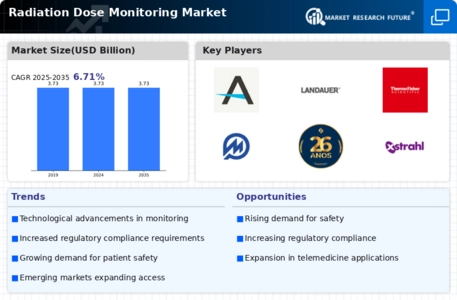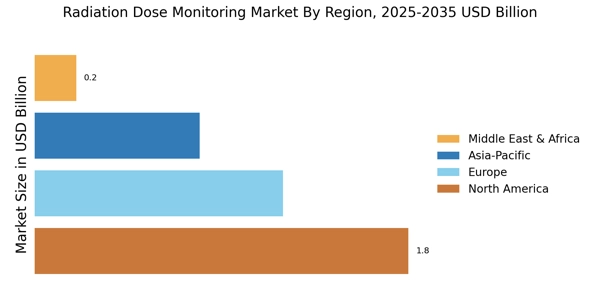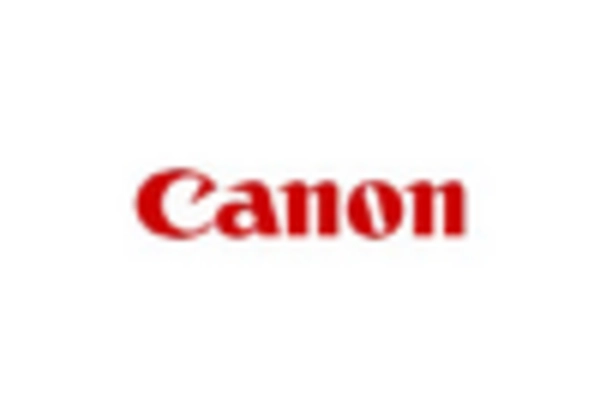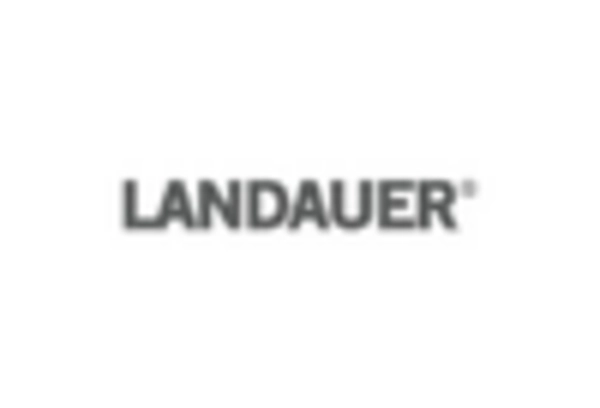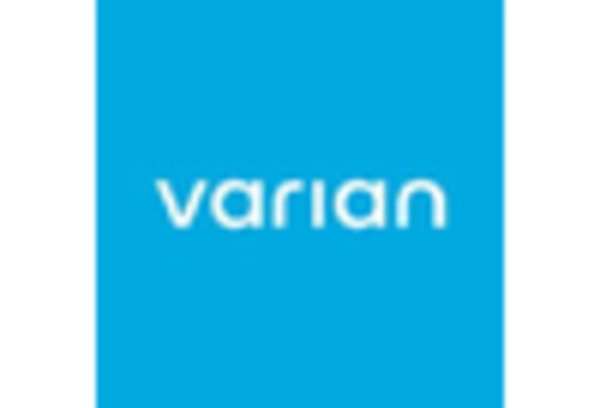Increasing Awareness of Radiation Risks
There is a growing awareness regarding the risks associated with radiation exposure, which is significantly influencing the Radiation Dose Monitoring Market. Healthcare professionals and patients alike are becoming more informed about the potential adverse effects of radiation, leading to a heightened demand for effective monitoring solutions. This awareness is prompting healthcare facilities to adopt advanced radiation dose monitoring systems to ensure compliance with safety standards. As a result, the market is anticipated to expand, with an estimated value reaching USD 1.5 billion by 2026. The emphasis on patient safety and the need for transparent communication about radiation risks are likely to drive investments in innovative monitoring technologies.
Regulatory Frameworks and Compliance Requirements
The Radiation Dose Monitoring Market is heavily influenced by stringent regulatory frameworks and compliance requirements established by health authorities. These regulations mandate the implementation of effective radiation dose monitoring systems in medical facilities to safeguard patient health. Compliance with these regulations not only ensures patient safety but also protects healthcare providers from potential legal liabilities. As regulations evolve, the demand for advanced monitoring solutions is expected to rise, propelling market growth. The industry is likely to see an increase in investments aimed at developing systems that meet these regulatory standards, thereby enhancing the overall safety and efficacy of radiation therapy.
Technological Innovations in Radiation Dose Monitoring
The Radiation Dose Monitoring Market is experiencing a surge in technological innovations that enhance the accuracy and efficiency of dose measurement. Advanced systems, such as real-time monitoring devices and integrated software solutions, are being developed to provide precise data on radiation exposure. These innovations not only improve patient safety but also streamline workflow in healthcare settings. The market is projected to grow at a compound annual growth rate of approximately 7.5% over the next few years, driven by the increasing demand for effective radiation management solutions. Furthermore, the integration of artificial intelligence and machine learning into monitoring systems is expected to revolutionize the industry, allowing for predictive analytics and improved decision-making in radiation therapy.
Rising Incidence of Cancer and Diagnostic Imaging Procedures
The increasing incidence of cancer and the growing number of diagnostic imaging procedures are key drivers of the Radiation Dose Monitoring Market. As the prevalence of cancer continues to rise, there is a corresponding increase in the use of radiation-based diagnostic and therapeutic procedures. This trend necessitates the implementation of effective radiation dose monitoring systems to minimize exposure risks. The market is projected to witness substantial growth, with estimates suggesting a value of USD 1.8 billion by 2027. The demand for accurate dose monitoring is further fueled by the need for healthcare providers to balance effective treatment with patient safety, making advanced monitoring solutions essential in clinical practice.
Integration of Radiation Dose Monitoring in Healthcare IT Systems
The integration of radiation dose monitoring systems into existing healthcare IT infrastructures is becoming increasingly prevalent within the Radiation Dose Monitoring Market. This integration facilitates seamless data sharing and enhances the overall efficiency of radiation management processes. By incorporating monitoring systems into electronic health records and other IT platforms, healthcare providers can ensure comprehensive tracking of patient exposure levels. This trend is likely to drive market growth, as it allows for better data analysis and improved patient outcomes. The potential for interoperability between different systems is expected to further enhance the effectiveness of radiation dose monitoring, making it a critical component of modern healthcare practices.


